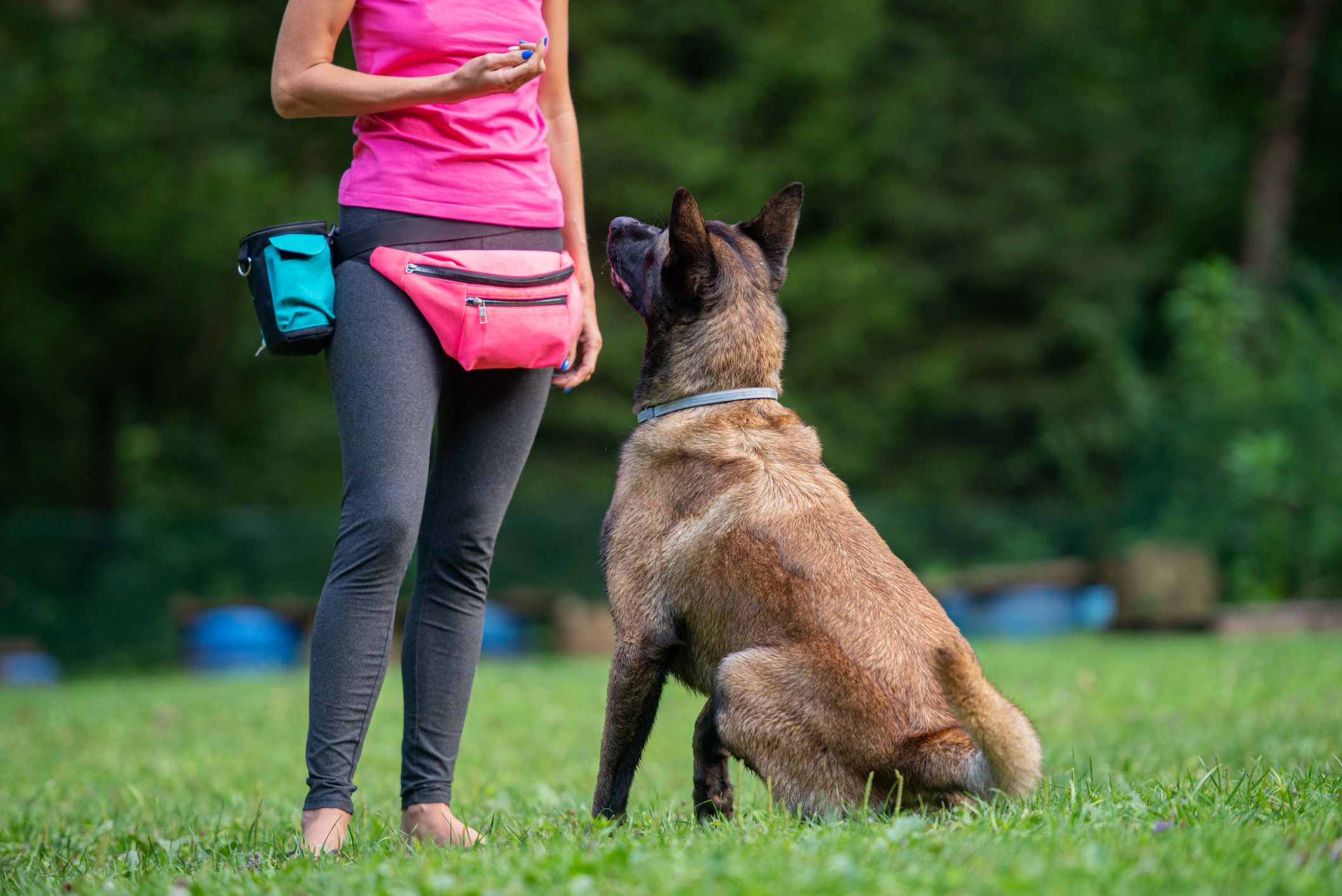Leading Pet Educating Tips for a Well-Behaved Companion
Educating your dog to be a well-behaved companion needs a nuanced understanding of canine actions and the implementation of efficient strategies. The trip to a courteous family pet entails more than simply these essentials; it demands a deeper exploration of strategies that can change your training strategy.
Comprehending Pooch Habits
Recognizing canine actions is important for reliable dog training and promoting a harmonious partnership between canines and their owners. Pet dogs are intricate animals, exhibiting a wide variety of behaviors affected by genetics, environment, and socialization. Recognizing the underlying inspirations for a dog's actions-- such as fear, exhilaration, or territorial instincts-- can significantly boost training performance.
Social interactions with other dogs and human beings play a critical function in shaping actions. Pet dogs that experience favorable socialization are generally more versatile and genteel.

Vital Educating Commands
Mastering necessary training commands is essential for establishing effective communication in between canines and their proprietors. These commands offer as the structure for a mannerly pet dog and can considerably boost the general connection between pet and proprietor.
"Stay" reinforces a pet's capacity to remain in one position, promoting self-control. "Down" instructs your canine to lie down, which can help in managing fired up habits. "Heel" educates your canine to walk alongside you, cultivating far better chain manners.
Consistency and quality in command shipment are vital. Each command must be coupled with a certain hand signal or gesture to strengthen understanding. Exercising these commands in various settings helps dogs generalize their training and respond suitably, regardless of disturbances. By investing time in instructing these vital commands, proprietors can cultivate an unified and respectful relationship with their canine friends, boosting both safety and security and satisfaction in everyday communications.
Favorable Support Strategies
Positive support strategies are essential strategies in dog training that focus on rewarding wanted actions to encourage their reappearance. This approach leverages the natural understanding procedures of canines, allowing them to associate certain actions with positive outcomes. By utilizing deals with, praise, or play as benefits, fitness instructors can successfully motivate dogs to repeat the actions they wish to enhance.
To implement favorable support, it is vital to supply incentives promptly after the wanted behavior happens. This assists the dog make a clear link in between their action and the incentive. Consistency is also crucial; incentives ought to be offered every time the desired habits is displayed during the initial training phase, progressively transitioning to a variable routine as the habits comes to be a lot more reliable.
Understanding your canine's preferences can improve the training experience. Eventually, favorable support fosters a relying on partnership in between the pet and proprietor, making training a much more enjoyable and efficient procedure that constructs a well-behaved companion.

Socializing Techniques
Efficient socializing approaches are crucial for a dog's growth, as they aid establish an all-around and certain buddy. Very early exposure to various environments, people, and various other pets is vital to prevent behavioral issues in the adult years. Start this procedure throughout the vital socializing period, which usually happens between three and fourteen weeks of age.
Present your pup to varied stimulations, such as various surfaces, appears, and Check Out Your URL smells. Controlled encounters with other pet dogs and pleasant people can foster positive organizations. Young puppy courses are an outstanding resource, supplying structured settings for social interaction and finding out basic commands.
Progressively increase the intricacy of socializing my link experiences. Take your canine to parks, pet-friendly stores, and public occasions, making sure each experience is positive. Observe your dog's responses and remove them from overwhelming circumstances to avoid fear-based actions.
Utilize positive support to award calm and positive habits throughout social interactions. This could involve treats, appreciation, or playtime. Remember, patience is crucial; each pet has its very own rate for adjusting to brand-new experiences. By executing these socialization techniques, you lay the foundation for a well-adjusted and sociable canine friend.
Uniformity and Routine
Developing uniformity and regimen in dog training is vital for promoting a complacency and understanding in your animal. Dogs thrive on predictability; recognizing what to anticipate aids them really feel safe and decreases anxiety. When training, it is important to make use of the very same commands, motions, and benefits regularly. This harmony help in reinforcing wanted actions and aids your dog swiftly associate details activities with specific end results.
Incorporating a structured regimen right into your training sessions additionally boosts your pet's discovering experience - Dog training near me. Arrange day-to-day training sessions at the very same time daily, making certain that both you and your canine are mentally ready. Short, constant training sessions are extra efficient than long, seldom ones; go for 5 to 10 minutes of focused training multiple times a day
Include training right into daily tasks-- compensate your pet dog for resting prior to dishes or strolling calmly on a leash. Generally, a regular strategy, matched with an organized routine, lays the foundation for a well-behaved buddy, promoting an unified partnership between you and your canine.
Conclusion
In conclusion, efficient canine training relies upon recognizing canine habits and carrying out essential commands such as "Sit," "Stay," and "Come." Positive support techniques offer to motivate desired actions, while early socialization prepares dogs for varied settings. Establishing consistency and a routine fosters predictability, which adds to a well-behaved companion. By highlighting these essential reference components, the bond between owner and dog enhances, ultimately resulting in an unified and meeting relationship.